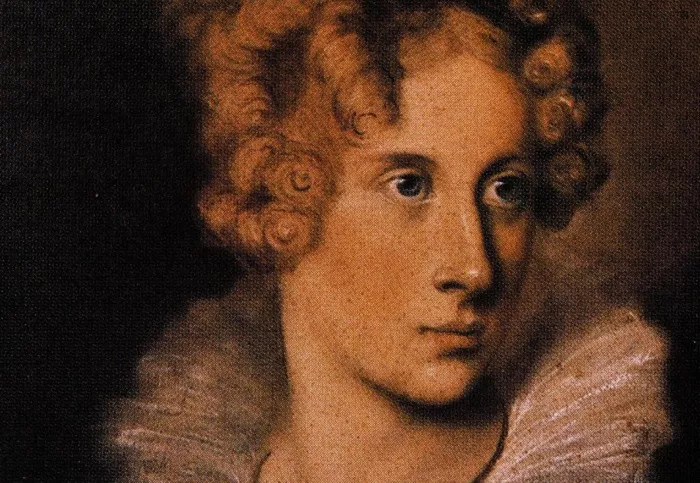The 19th century was a transformative period for German poetry, as it witnessed the emergence of several remarkable poets who left a profound impact on literature. Among them, Annette von Droste-Hülshoff (1797-1848) holds a distinguished place. As a 19th century German poet, she was one of the few women in the era to gain recognition for her literary talent. Droste-Hülshoff’s poetry reflects a deep connection to nature, a keen psychological insight, and a strong moral and religious sensibility. Her works remain an essential part of German poetry, offering rich insights into the cultural and social milieu of her time.
Early Life and Background
Annette von Droste-Hülshoff was born into an aristocratic Westphalian family in 1797. Raised in a highly intellectual and conservative environment, she received an extensive education, which was unusual for women of her time. She showed an early inclination towards literature, and her upbringing allowed her to engage with intellectual figures, further shaping her poetic style.
Unlike many of her contemporaries who lived in urban centers and engaged directly with literary circles, Droste-Hülshoff spent most of her life in rural solitude. This isolation gave her a unique perspective, setting her apart from the mainstream literary movements of the time. Her aristocratic background also influenced her worldview, as she had access to education and intellectual stimulation, yet remained somewhat distanced from the social and political upheavals that defined the early 19th century.
Literary Style and Themes
Droste-Hülshoff’s poetry is known for its rich imagery, attention to natural details, and psychological depth. She often explored themes of human suffering, morality, guilt, and redemption. Unlike many of her male contemporaries who focused on national identity and political concerns, she delved into personal and existential struggles.
Nature plays a vital role in her poetry. Unlike the idealized landscapes of Romanticism, her natural imagery is often dark and foreboding, reflecting the complexities of human emotion. Her descriptions of the German countryside are vivid, yet they serve as metaphors for internal conflicts and spiritual crises.
Another significant theme in her work is religious faith. As a devout Catholic, she frequently engaged with theological questions, expressing a deep concern with moral integrity. Her poetry does not merely celebrate religious devotion but also grapples with doubt and the burden of sin. This introspective approach makes her work particularly powerful and timeless.
Comparison with Contemporaries
As a 19th century German poet, Droste-Hülshoff was both influenced by and distinct from her contemporaries. Her works exhibit elements of Romanticism, but she never fully aligned with the movement. Unlike Novalis and Eichendorff, whose poetry often embraced an ethereal, dream-like quality, her work was grounded in realism. She shared some thematic concerns with Heinrich Heine, particularly in her critique of societal norms, yet her approach lacked Heine’s irony and political sharpness.
Another relevant comparison can be drawn with Johann Wolfgang von Goethe, whose literary influence was pervasive in German poetry. While Goethe’s exploration of nature was often celebratory and harmonious, Droste-Hülshoff’s depiction was more somber, revealing an awareness of nature’s dangers and mysteries. Furthermore, unlike Friedrich Schiller, who frequently wrote about grand historical themes, Droste-Hülshoff focused on personal struggles and psychological depth.
Her poetry also has affinities with Eduard Mörike, a fellow 19th century German poet who shared her sensitivity to nature and psychological insight. However, Mörike’s work often had a lighter, more lyrical quality, whereas Droste-Hülshoff’s tone was more serious and intense.
Major Works
One of her most celebrated works is “Die Judenbuche” (The Jew’s Beech), a novella that masterfully combines psychological realism with social critique. Although it is a work of prose, its poetic language and deep psychological exploration make it a significant contribution to 19th century German literature. The story revolves around themes of guilt, justice, and fate, showcasing her ability to blend narrative storytelling with poetic sensibilities.
Her poetry collections, such as “Gedichte” (Poems) and “Das geistliche Jahr” (The Spiritual Year), display her mastery of verse. “Das geistliche Jahr” is particularly noteworthy for its religious and philosophical reflections, offering insight into her moral concerns and spiritual struggles.
Impact and Legacy
Annette von Droste-Hülshoff’s legacy in German poetry is significant. As one of the few female poets of her time to gain recognition, she paved the way for future women writers in Germany. Her works continue to be studied for their psychological complexity, moral depth, and unique poetic vision.
In the broader context of 19th century German poetry, she occupies a unique space. While many of her male counterparts were engaged in political discourse and nationalistic fervor, she remained focused on the personal and the spiritual. Her poetry offers a different perspective on the human experience, one that is introspective, nuanced, and deeply moving.
Her influence extends beyond literary circles, as her works have been adapted into various artistic forms, including music and theater. Contemporary scholars and critics continue to explore her contributions, recognizing her as a pivotal figure in German literature.
Conclusion
Annette von Droste-Hülshoff stands as a remarkable figure in 19th century German poetry. Her work, characterized by its psychological depth, moral inquiry, and vivid natural imagery, remains a vital part of German literary heritage. In comparison with her contemporaries, she carved out a distinct poetic identity that continues to captivate readers and scholars alike. As one of the most influential female poets in German literature, her legacy endures, offering profound insights into the complexities of human nature and the world around us.

